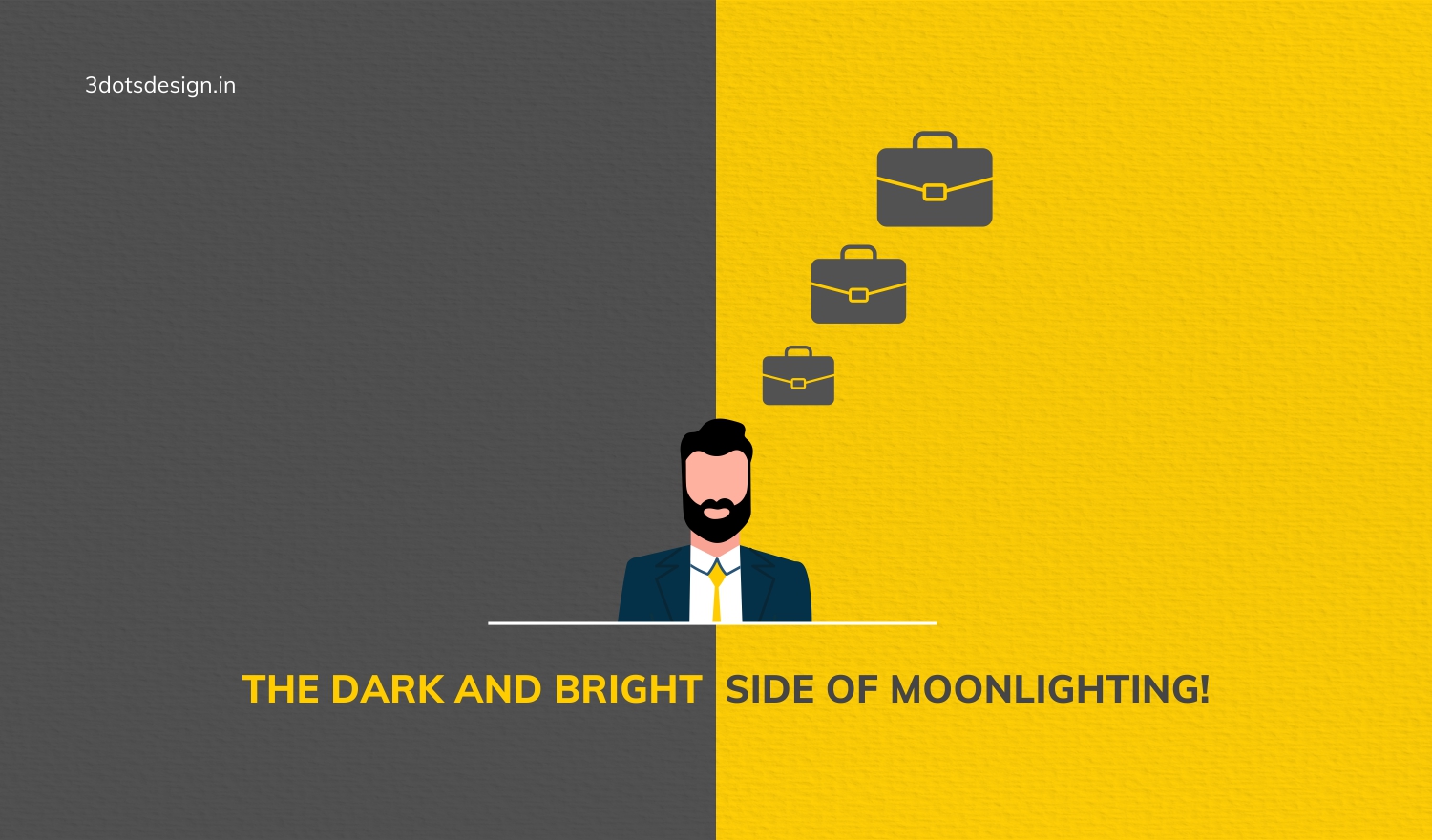Quick Disclaimer: This has got nothing to do with either the moon or moonlight! Instead, it’s got everything to do with what one does when the moon is out!
There has been a lot of noise lately regarding the ethicality of whether or not an employee can take up a second job while still working the first one. This is not such a great deal when it comes to the advertising fraternity because the community of artists thrives on freelance work. Either big companies need them or small artists need them. Again, freelancing is a completely different ball game. Most of the time freelancing is confused with moonlighting, but they are two completely different entities. The topic of freelancing will be covered in the next article apparently. What we are talking today is about ‘Moonlighting’. The article digs deep into the rights and wrongs of what happens to be the buzzword of the season and has been the talk of the town, especially in the IT sector.
Moonlighting, what?
For the uninitiated, moonlighting refers to the practice of working for one company while taking up additional work, responsibilities and jobs from another employer. On a comical note, it used to be a life of a superhero or a vigilante who did a normal job during the day and turned into a crime-fighting hero by night. If ever this superhero worked for an MNC in India, he would have been terminated (unless his secret identity was the same as his employee ID.)
So, coming to the hot topic, moonlighting has had divided views in the industry and many companies have been calling this “cheating”, “illegal” and many other labels. What seems to be the challenge really?
The Dark Side of Moonlighting
IT giants like Infosys TCS and Wipro are taking strict disciplinary actions against employees who have been working double jobs and are even terminating them. The practice is quite common in the western part of the world like in the US and UK where people take up dual employment to support their income. A salesperson tends to take up bartending; a school teacher by day becomes a stock market consultant by night, and so on. This phenomenon has not yet garnered the right set of eyeballs in the country as it also attracts an equal amount of income tax which is the actual bone of contention.
Legalising overemployment in India is still a far-fetched dream. Though it is permissible in the US & UK from a tax perspective, in India, the whole tax status of an individual can change because of wanting to make ends meet. However, in India, a person may work more than one job, without breaking the law and confidentiality entrusted by the employers. If an employee is working in a non-compete contractual job, it is definitely considered “cheating”, but when no such clauses exist, it cannot be called illegal or cheating.
The Bright Side of Moonlighting
Taking this issue into notice, many companies have already begun to establish rules related to Moonlighting. Swiggy has even formed a “Moonlighting Policy” that allows their employees to take up jobs outside the workplace until their productivity during working hours isn’t hampered. The concept of “Ethical Moonlighting” is soon coming to the fore and gaining more popularity. Being in the IT sector, the MD of Tech Mahindra quoted to the press that even his organisation would probably “make a policy” about moonlighting but hopes that the employees are “open about it”.
There’s no concrete decision made yet on moonlighting across the industry. Established companies with data on a large scale need to deal with the confidentiality and ethicality of moonlighting, while startups can choose to be path-breakers and bring in some flexibility by accepting, “the biggest open secret in the tech industry”.
What’s in it for Advertising?
Well, more the merrier is what we wish to believe in, but as far as the ethicality and legality of moonlighting go, advertisers always tend to walk on thin ice. Speaking neutrally about such a fragile topic is also what advertising is all about. Imagine, if the ad agency suggests the companies take a corporate stance, either for or against moonlighting, and supports their stance with a creative message, it can be ‘Cannes-worthy’ and would even influence a larger group. Building a corporate identity is something that goes a long way from merely creating one ad campaign. When the idea is powerful enough, it would ideally make it to the press, people would talk about it on social media and publicity of the brand would be completely organic. Any form of publicity is good publicity after all, if it adds value to the brand, right?
At 3 Dots Design Pvt. Ltd., it is our responsibility to stay up to speed on what’s happening in and around us. It is imperative for us to use the best resources to deliver top-notch creative campaigns to clients by operating well within the legal framework. Being one of the best creative ad agencies in Pune, we have a team of experienced content writers, creative artists, designers, strategic managers and digital frontrunners who lead the growth wagon. If you wish to know more about who we are or what we do, please visit www.3dotsdesign.in or get in touch with us at contact@3dotsdesign.in

